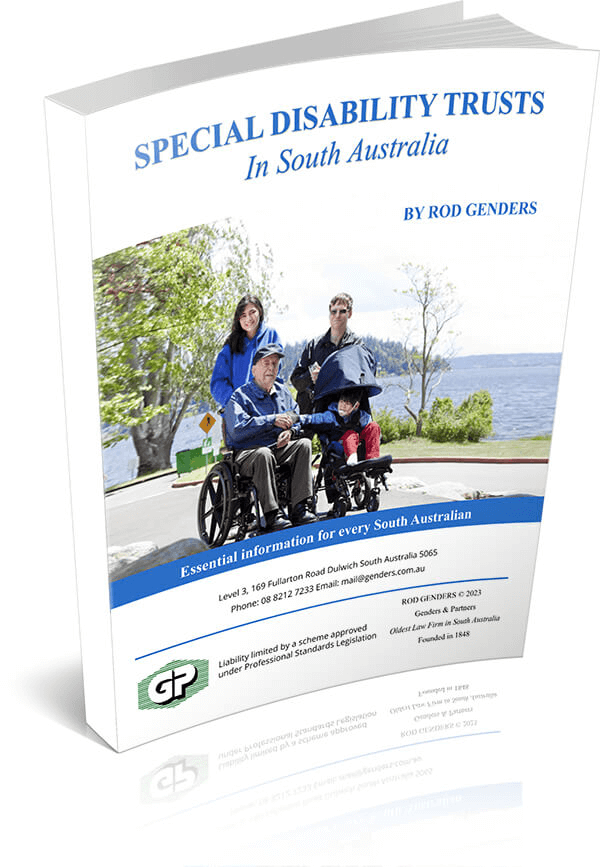The difficulty for these parents, is in trying to grapple with the too-hard decision of who will look-after their children after the parents have gone. Many cannot overcome this emotional-paralysis, and simply hope against hope they will live just slightly longer than their child, so that neither parent nor child ever have to deal with the situation.
The reality is that most disabled children outlive their parents, so providing for their care after the caregiver’s death is a vital issue. If the parent simply leaves money for the child, it could disqualify the child for government assistance, but still not provide properly for the child’s special needs.
A special needs trust may present a solution. A lawyer specialising in the legal needs of the elderly and disabled, can help the parents or other family members to set up a trust. With careful planning (both legal & financial), the assets may not be taken into account by the government when assessing the child’s entitlement to assistance, but distributions from the trust are used to provide greater comfort & independence for the child.
In this way, even after the parents have died, they can continue to care for their children. This can assist children with a variety of disabilities, including Down syndrome, autism, cerebral palsy, the aftermath of vehicle accidents, chronic diseases or anyone who may need a combination of government and private services to provide a good quality of life.
Such a trust also has the advantage of keeping the money safe from the child’s creditors (in case he gets sued, or goes bankrupt), and from family members who might be tempted to use the funds for their own benefit rather than the disabled person. If funds are simply left to another family member, they could be diverted if that family member dies or goes through a divorce.
If the trust has funds left when the disabled person dies, the money can go to a beneficiary designated by the trust.
If the disabled person is mentally competent, he should have a general enduring power of attorney, a medical power of attorney, an appointment of guardian and an advanced directive for end-of-life decisions. If they aren’t able to make decisions on their own, they will need a guardian to make major decisions.
Rod Genders is a senior Australian lawyer specialising in accident compensation and estate planning in Adelaide. His boutique specialist law firm is one of the oldest and most respected in Australia – visit it at www.genders.com.au . Rod is also a prolific author and speaker. Some of his articles and books on Wills, Probate, Trusts, Estate Planning, Asset Protection and Retirement Planning may be found at www.genders.com.au/adelaide-lawyer-blog.
SPECIAL REPORT “Special Disability Trusts in South Australia”

Enjoy this article?
Check out the full report containing Special Disability Trust in South Australia from senior Australian lawyer Rod Genders.








